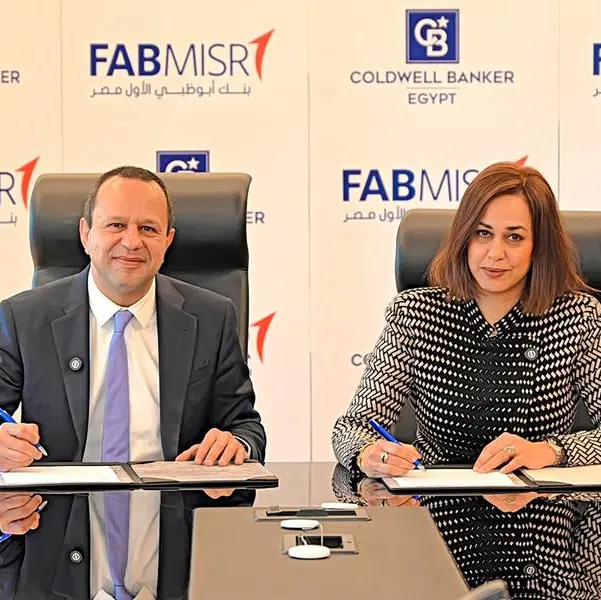PHOTO
Dubai, United Arab Emirates — Sophos, a global leader of innovative security solutions for defeating cyberattacks, today announced it is a Leader in the IDC MarketScape: European Managed Detection and Response (MDR) Services in 2024 Vendor Assessment (doc # EUR151172124, September 2024), which evaluates the product offerings and business strategies of MDR vendors. Sophos is also named a Leader in three worldwide IDC MarketScape 2024 reports: the IDC MarketScape: Worldwide Modern Endpoint Security for Midsize Businesses 2024 Vendor Assessment*, the IDC MarketScape: Worldwide Modern Endpoint Security for Small Businesses 2024 Vendor Assessment**, and the IDC MarketScape: Worldwide Managed Detection and Response (MDR) 2024 Vendor Assessment***.
We believe as a Leader in all four reports, Sophos is cementing its commitment to understanding and meeting the needs of small and midsize businesses (SMBs) with an expansive portfolio of world-class products and managed security services that interoperate and are compatible with virtually any environment or tech stack.
With more than 23,000 MDR customers worldwide, including over 5,000 in Europe, Sophos is one of the biggest players on the market in terms of customer base. Insights and learnings from this large customer base feeds into a knowledge bank of real-time intelligence that benefits all customers by enabling the company’s team of cybersecurity and threat intelligence experts, to monitor, investigate and respond to threats 24/7.
According to the IDC MarketScape for WW MDR Services, “Sophos MDR has expanded its detection capabilities beyond their Sophos products. Data is collected from third party alert sources across multiple domains, which include but are not limited to endpoint, firewall, cloud, and identity.”
"Sophos’ MDR offering is unique as at the very core of it is human-led threat response is telemetry from third-party security technologies as well as Sophos’s own security products. This ensures that Sophos MDR can continually adapt and grow as threats develop, and enables us to quickly detect and remediate attacks regardless of customers’ existing security solutions,” said Rob Harrison, senior vice president for endpoint and security operations product management at Sophos. “We believe this recognition from the IDC MarketScape reaffirms our commitment to protect small and midsize businesses. We’re proud to be valued for the security solutions we provide to defend organizations from cybercrime.”
With more than two-thirds of Sophos’ MDR customer base being organizations with up to 250 employees, and almost a fifth in the 250 to 999 employee segment, Sophos has built a very strong position in the midmarket.
“With decades of experience and knowledge, Sophos has considerable expertise when it comes to how cyberattacks impact and unfold across enterprise infrastructure. Sophos has put significant emphasis on building teams of highly experienced and skilled security analysts and built its MDR business on the back of a strong technology platform,” said Richard Thurston, research manager, European Security Services, IDC. “Where organizations are seeking an MDR provider with deep security expertise and a human-led service that engages with them from the outset until an incident has been resolved, Sophos represents a compelling option.”
Sophos’ portfolio of managed security services and solutions – including Sophos MDR, Sophos Intercept X, Sophos XDR, and Sophos Firewall – are part of the Sophos Adaptive Cybersecurity Ecosystem where they share real-time threat intelligence for faster and more contextual and synchronized protection, detection and response. They’re powered by Sophos X-Ops threat intelligence, a cross-operational task force of more than 500 security experts within SophosLabs, Sophos SecOps and SophosAI. Solutions are easily managed in the cloud-native Sophos Central platform, where users can oversee installations, respond to alerts and track licenses and upcoming renewal dates via a single, intuitive interface.
*Doc #US49006922, April 2024
**Doc #US50521424, March 2024.
***Doc #US50521323, February 2024.
-Ends-
About Sophos
Sophos is a global leader and innovator of advanced security solutions for defeating cyberattacks, including Managed Detection and Response (MDR) and incident response services and a broad portfolio of endpoint, network, email, and cloud security technologies. As one of the largest pure-play cybersecurity providers, Sophos defends more than 600,000 organizations and more than 100 million users worldwide from active adversaries, ransomware, phishing, malware, and more. Sophos’ services and products connect through the Sophos Central management console and are powered by Sophos X-Ops, the company’s cross-domain threat intelligence unit. Sophos X-Ops intelligence optimizes the entire Sophos Adaptive Cybersecurity Ecosystem, which includes a centralized data lake that leverages a rich set of open APIs available to customers, partners, developers, and other cybersecurity and information technology vendors. Sophos provides cybersecurity-as-a-service to organizations needing fully managed security solutions. Customers can also manage their cybersecurity directly with Sophos’ security operations platform or use a hybrid approach by supplementing their in-house teams with Sophos’ services, including threat hunting and remediation. Sophos sells through reseller partners and managed service providers (MSPs) worldwide. Sophos is headquartered in Oxford, U.K. More information is available at www.sophos.com.
About IDC MarketScape:
IDC MarketScape vendor assessment model is designed to provide an overview of the competitive fitness of technology and service suppliers in a given market. The research methodology utilizes a rigorous scoring methodology based on both qualitative and quantitative criteria that results in a single graphical illustration of each vendor’s position within a given market. IDC MarketScape provides a clear framework in which the product and service offerings, capabilities and strategies, and current and future market success factors of IT and telecommunications vendors can be meaningfully compared. The framework also provides technology buyers with a 360-degree assessment of the strengths and weaknesses of current and prospective vendors.




















